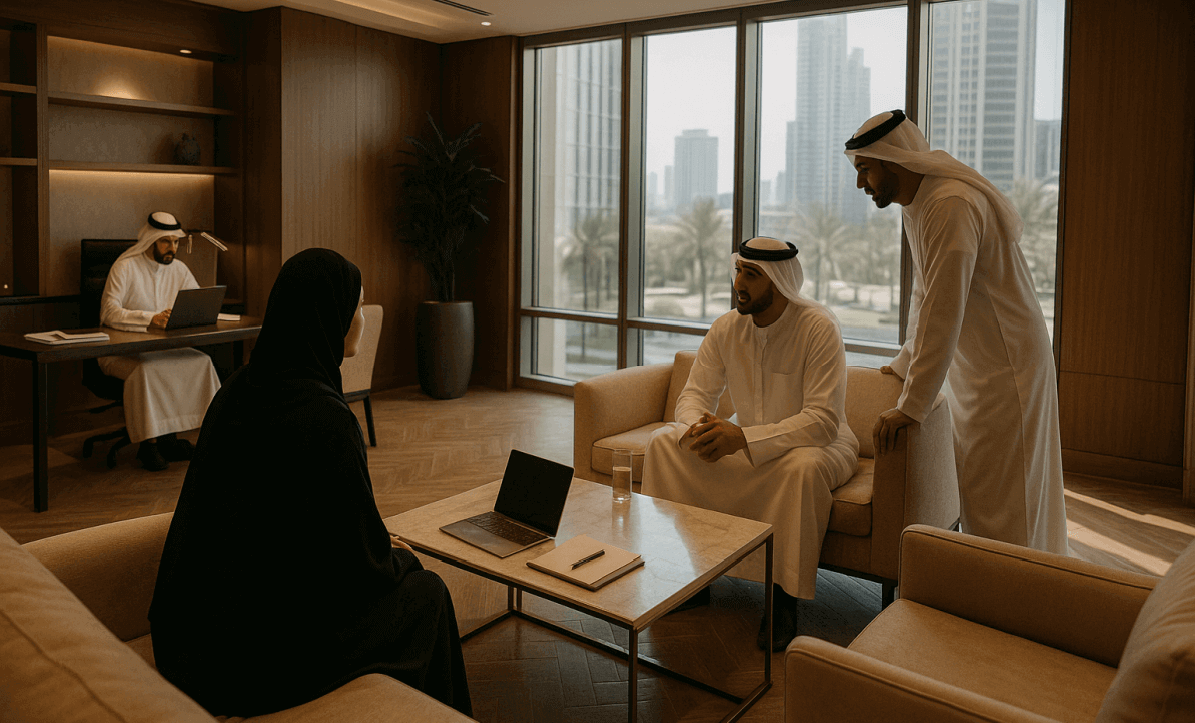Why should MENA family offices rethink direct startup investments

When a family sells a company, cashes out of a long-held asset, or completes a lucrative IPO, a common question often arises: What now?
For many family offices, the answer is to go direct.
Direct investments—bypassing funds and investing straight into startups—have long held a certain allure. The idea of owning a bigger slice of a promising company, skipping management fees, and maintaining control is deeply appealing. But beneath the surface, this strategy often conceals more risk than reward.
"After an inheritance or liquidity event, families often make larger investments than their risk tolerance allows," says Christopher Aw, a board director at Operation Snow Leopard and an advisor to multiple family offices. "I’ve seen wealth vanish from poorly executed direct deals. It’s easy to think you can afford the risk because you have a lot of capital, but it adds up quickly."
While some family offices succeed with direct investing, many more misjudge the time, expertise, and diligence required to make it work. Christopher adds, "Some family offices now think VC is a bad investment, but in reality, it’s one of the best asset classes for high returns—they just didn’t approach it the right way."
The illusion of control
Direct deals offer the illusion of proximity and influence. But unlike institutional VCs, most family offices don’t have the operating muscle, domain expertise, or network to properly evaluate early-stage startups. Due diligence often relies on intuition or informal connections, rather than structured frameworks.
"Some families think they know the space well enough and don’t bring in outside experts, which can be risky," Christophers says. "Deep tech is cutting-edge by definition, so even financial professionals struggle to truly understand it."
This overconfidence, especially post-liquidity, can be dangerous. Many families, flush with capital, jump into unfamiliar sectors with limited support. Worse, they tend to over-concentrate—placing big bets on a few deals instead of building diversified exposure.
The case for indirect investing
So what’s the alternative? For family offices, the most practical approach is indirect investing through venture capital funds, or what Christopher calls building a "large passive portfolio". These funds are managed by seasoned professionals who know how to manage risk, structure portfolios, and gain access to high-potential deals.
"The best strategy is for family offices to build a large passive portfolio," says Christopher. "Direct deals might seem like passive investments, but they’re not—they require a lot of active involvement. Few people do it well."
In the MENA region, over 83% of family offices now invest in private equity, with many increasing allocations to VC in recent years. In MENA, approximately 58% of family offices are active in venture capital and other regional studies. The region is home to over 124 single-family offices, collectively investing more than $383 billion across 7,200+ deals.
This doesn’t mean family offices should avoid direct investing entirely. But the approach must be strategic. Investing selectively, alongside a trusted VC partner or as a co-investor, allows families to benefit from expert insight while retaining a degree of ownership and control.
Learning the hard way
In the Middle East, where family-run businesses form the backbone of the private sector, the temptation to invest directly is particularly strong. Relationship-driven business culture reinforces the instinct to back people you know. However, as several families have painfully discovered, familiarity does not ensure success.
"I know families that lost millions on direct deals that sounded great at dinner parties," Christopher says. "It’s not just about capital—it’s about discipline, structure, and humility."
For fund managers seeking LPs in the region, this presents both a challenge and an opportunity. Many families are sceptical of traditional funding structures, scarred by past mistakes. But others are starting to see the value of partnering with experienced managers, especially in complex sectors like fintech, AI, and cross-border logistics.
Some of the most notable investments led by MENA-based family offices include Mayhoola’s acquisition of Valentino for €700 million in 2012 (and its partial sale to Kering for €1.87 billion in 2023) and Al Nowais Investments’ $1 billion commitment to renewable energy in Egypt. These landmark deals illustrate both the scale and ambition of regional capital.
And while the excitement around private credit is starting to cool, it still holds appeal—especially for family offices seeking steady returns in the 10–12% range. Private credit offers a more flexible option compared to private equity, which may yield 15–17% but comes with greater illiquidity. This shift reflects a broader trend: as family offices expand and evolve, more individuals are branding themselves as family office representatives. It's a signal of the growing influence these entities have in shaping capital markets.
"At the end of the day, the families who win are the ones who ask hard questions, surround themselves with experts, and stay honest about what they don’t know," says Christopher.
___________________________________________________________________________________________________________________________
This article is part of an ongoing series exploring how family offices in the MENA region are navigating venture capital, private equity, and alternative investments. Stay tuned for more insights in the coming weeks.


